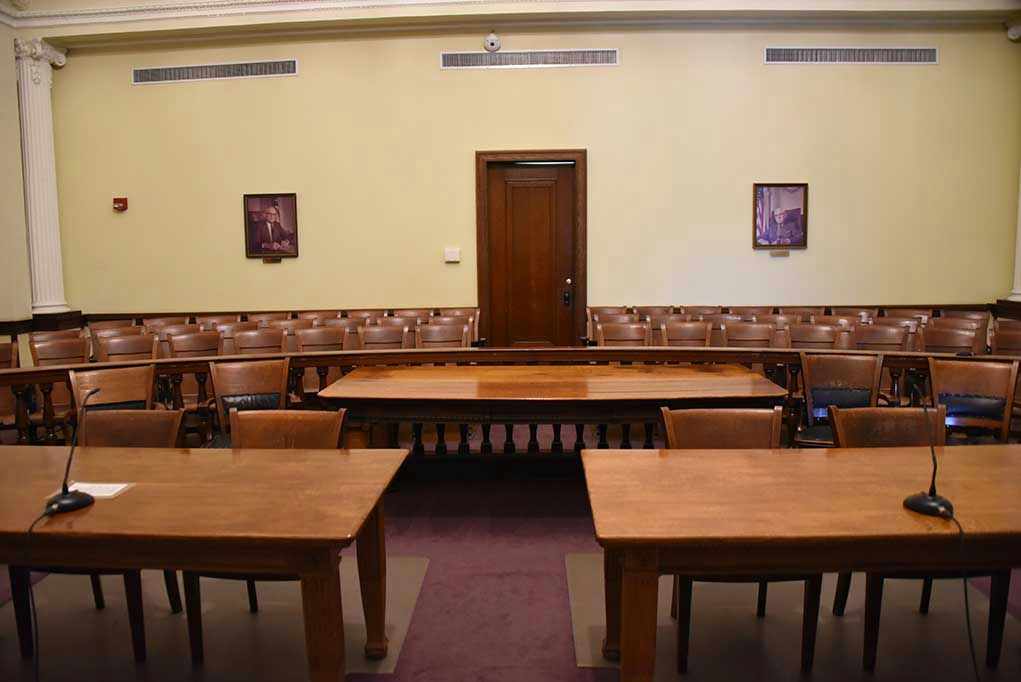
Allegations of a White House cover-up of President Biden’s mental decline have triggered a sweeping Congressional investigation, exposing what many see as an unprecedented threat to transparency and constitutional governance.
Story Highlights
- Republican-led Congressional committees are investigating claims that Biden’s aides concealed his cognitive decline and used the autopen to sign official documents.
- Testimony from a top Biden communications staffer, who did not invoke the Fifth Amendment, has fueled demands for deeper scrutiny and more subpoenas.
- Biden’s former physician, Dr. Kevin O’Connor, pleaded the Fifth and cited physician-patient privilege in a closed-door deposition.
- House and Senate committees are coordinating parallel probes, with the National Archives releasing thousands of related documents.
- The investigations raise urgent questions about who was truly making executive decisions in the final years of Biden’s presidency.
Congressional Probes Target Alleged Biden Health Cover-Up
Republican lawmakers have launched intensive investigations into claims that senior White House officials concealed President Joe Biden’s cognitive and physical decline during his time in office. The House Oversight Committee, led by Rep. James Comer, and the Senate Permanent Subcommittee on Investigations, chaired by Sen. Ron Johnson, are spearheading parallel inquiries. Their focus includes whether Biden’s aides, physicians, and cabinet members orchestrated a cover-up that extended to the use of an autopen for signing legislation and executive orders—raising red flags about who was wielding presidential power and eroding public trust in constitutional leadership.
The probes intensified after a top Biden communications staffer delivered testimony under oath, refusing to invoke the Fifth Amendment and providing new details about the inner workings of the Biden White House. Meanwhile, Dr. Kevin O’Connor, Biden’s long-time physician, was subpoenaed but repeatedly cited physician-patient privilege and the Fifth Amendment in a closed-door session. Investigators say these actions have only heightened suspicions, with Chairman Comer calling the alleged concealment “one of the greatest scandals in our nation’s history.” The National Archives is now reviewing and releasing thousands of documents connected to Biden’s health and use of the autopen, as questions mount about the legitimacy of key executive actions.
Key Events and Political Dynamics
Scrutiny of Biden’s mental and physical fitness has simmered since his inauguration, fueled by verbal missteps, limited unscripted appearances, and aides shielding him from the press. The controversy escalated in 2024–2025 as media speculation grew and the House Oversight Committee formally launched its investigation. The Senate Judiciary Committee soon followed, holding hearings that featured testimony from journalists, former aides, and White House officials. Bipartisan concern exists, but the investigations remain primarily Republican-driven, with Democrats and some ex-Biden staff dismissing the effort as politically motivated. The context is further charged by the upcoming 2026 midterms and ongoing debates about the fitness and transparency of those holding the nation’s highest office.
Central to the Congressional focus are reports that a small circle of senior aides, including Annie Tomasini and Anthony Bernal, tightly controlled access to the president and effectively managed executive functions. The use of the autopen for official acts has drawn particular scrutiny, with investigators seeking to determine whether Biden himself was making critical decisions or whether unelected staff were exercising de facto presidential authority. The White House Counsel’s Office, for its part, is conducting an internal review, but has resisted turning over certain documents, citing privilege concerns—a move critics say undermines constitutional checks and balances.
Implications for Transparency, Accountability, and the Constitution
Legal scholars and political analysts note the extraordinary nature of these dual House and Senate probes. The situation echoes past controversies over presidential health—from Reagan’s second term to Woodrow Wilson’s incapacitation—but with new stakes given the pace and scope of modern executive action. The lack of direct medical disclosure, shielded by physician-patient privilege and the Fifth Amendment, has left many questions unanswered. Congressional investigators argue that the American public has a right to know who was truly in charge of the executive branch, warning that any concealment undermines the separation of powers and the spirit of democratic accountability. The stakes are particularly high for conservative Americans concerned about government transparency, potential overreach, and the erosion of core constitutional values.
THM News: A Top Biden Comms Aide Delivered Damning Testimony About the Mental Health Cover Up https://t.co/qc6SM9GrnJ
— Marlon East Of The Pecos (@Darksideleader2) August 22, 2025
The ongoing investigations are poised to set precedents for how presidential health is disclosed and scrutinized in the future. While some Democrats and former aides claim the probes are little more than partisan attacks, the release of new documents and continued testimony could force legislative reforms. The outcome will likely shape not only Biden’s legacy and the Democratic Party’s prospects but also the standards of transparency and accountability demanded from all future presidents.
Sources:
Chairman Comer Expands Investigation Into Biden Mental Decline Cover-Up
Age and health concerns about Joe Biden

